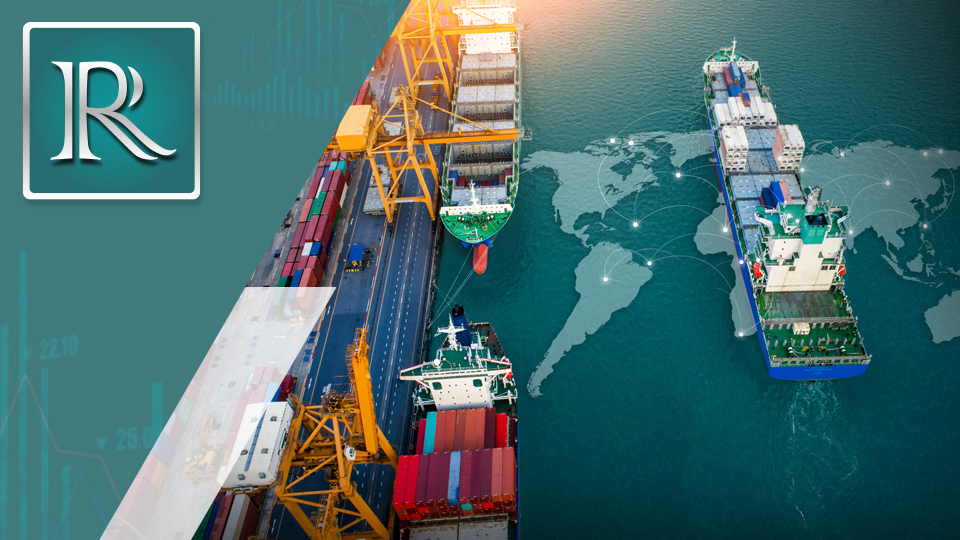Raco Investment, a leading logistics and supply chain financing firm, has unveiled a comprehensive set of expert strategies aimed at empowering small and medium-sized enterprises (SMEs) to overcome customs complexities and thrive in international trade. Recognizing the pivotal role SMEs play in global commerce, Raco Investment’s latest insights are designed to streamline operations, ensure compliance, and enhance competitiveness in the global marketplace.
Addressing the Challenges of Global Trade for SMEs
In an increasingly interconnected world, SMEs often face significant hurdles when venturing into international markets. These challenges include navigating intricate customs regulations, managing compliance requirements, and adapting to dynamic trade environments. Raco Investment identifies three primary obstacles that SMEs encounter:
Regulatory Complexity: The ever-evolving landscape of customs laws, trade agreements, and compliance standards can create operational bottlenecks for SMEs lacking dedicated regulatory expertise.
Cost Pressures: Tariffs, duties, and unforeseen shipping expenses can erode profit margins, making cost-effective logistics planning essential for sustainability.
Supply Chain Disruptions: Geopolitical shifts, economic fluctuations, and unexpected delays can impede the smooth movement of goods across borders, affecting delivery timelines and customer satisfaction.
“SMEs are vital players in global trade, but they often lack the resources and expertise to handle the intricate demands of customs and logistics,” says a representative from Raco Investment. “Understanding emerging trends and leveraging strategic support can make a significant difference in their success.”
Strategic Customs Advisory Insights for SMEs
To assist SMEs in overcoming these challenges, Raco Investment offers a suite of strategic customs advisory insights:
Harmonized Tariff Classification: Accurate classification of goods is crucial for determining applicable tariffs and duties. Misclassification can lead to unnecessary costs or penalties.
Customs Valuation Best Practices: Ensuring precise product valuation helps prevent disputes with customs authorities and avoids unexpected fees.
Origin Determination & Trade Agreements: Leveraging preferential trade agreements can reduce tariffs and provide competitive advantages for SMEs.
By integrating technology-driven customs solutions, businesses can automate compliance checks, track regulatory changes in real-time, and ensure adherence to international trade laws.
Enhancing Trade Facilitation and Market Access
Optimizing trade processes is key to enhancing competitiveness in international markets. Raco Investment provides SMEs with actionable strategies to streamline supply chain operations, reduce costs, and improve trade efficiency:
Utilizing Free Trade Zones (FTZs): Operating within FTZs can offer benefits such as duty deferrals, tax exemptions, and streamlined customs procedures.
Automating Trade Documentation: Digitalizing customs declarations, import/export licenses, and compliance reporting reduces paperwork and accelerates customs clearance.
Engaging in Advanced Customs Rulings: Pre-determining product classifications and valuations with customs authorities can prevent delays and disputes during shipments.
“Our goal is to help SMEs unlock new market opportunities while minimizing financial and logistical risks,” explains a Raco Investment spokesperson. “Through strategic trade facilitation measures, businesses can optimize shipping routes, negotiate better trade terms, and reduce customs-related expenses.”
Mitigating Supply Chain Risks Through Proactive Planning
Unpredictable supply chain disruptions can significantly impact SMEs engaged in international trade. Raco Investment advises businesses to implement:
Diversified Supplier and Logistics Networks: Reducing dependency on single-source suppliers minimizes risks associated with geopolitical tensions and trade restrictions.
Real-Time Supply Chain Visibility: Leveraging digital tracking tools enables businesses to monitor shipments, anticipate delays, and respond quickly to disruptions.
Customs Brokerage Partnerships: Collaborating with expert customs brokers ensures accurate documentation, faster clearance, and compliance with international trade laws.
By adopting a proactive approach to risk mitigation, SMEs can strengthen supply chain resilience and safeguard their international trade operations against unforeseen challenges.
Leveraging Trade Finance Solutions for Sustainable Growth
Financial constraints often hinder SMEs from expanding their global trade activities. Raco Investment offers tailored trade finance solutions that enable businesses to manage cash flow effectively, invest in international markets, and optimize working capital:
Supply Chain Financing: Enhancing cash flow by extending payment terms while ensuring suppliers receive timely payments.
Letter of Credit (LC) Optimization: Mitigating transaction risks by securing payment terms between buyers and sellers.
Export Credit Insurance: Protecting businesses against payment defaults and political risks in international markets.
“Our trade finance solutions help SMEs overcome liquidity challenges, ensuring they have the financial resources needed to scale operations and compete globally,” states a Raco Investment spokesperson.
Embracing Digital Transformation and Sustainability
Raco Investment emphasizes the importance of digital transformation and sustainability in modern trade practices:
Technology Integration: Adopting digital tools such as electronic documentation, automated customs clearance, and blockchain technology enhances efficiency and transparency.
Sustainable Supply Chains: Aligning operations with environmental standards and ethical practices meets consumer expectations and regulatory demands.
“Digital transformation is not just an advantage; it’s a necessity,” says Raco Investment. “By embracing digital solutions, SMEs can streamline processes and reduce operational bottlenecks.”
The Future of SME Success in Global Trade
As international trade continues to evolve, SMEs must embrace strategic customs planning, financial agility, and digital transformation to stay competitive. Raco Investment remains committed to guiding businesses through the complexities of global trade with expert insights and customized solutions.
“The future of global trade belongs to businesses that can navigate complexity with agility and confidence,” concludes a Raco Investment spokesperson. “By equipping SMEs with the right customs advisory strategies and financial tools, we help them unlock growth opportunities and thrive in the ever-changing global marketplace.”



